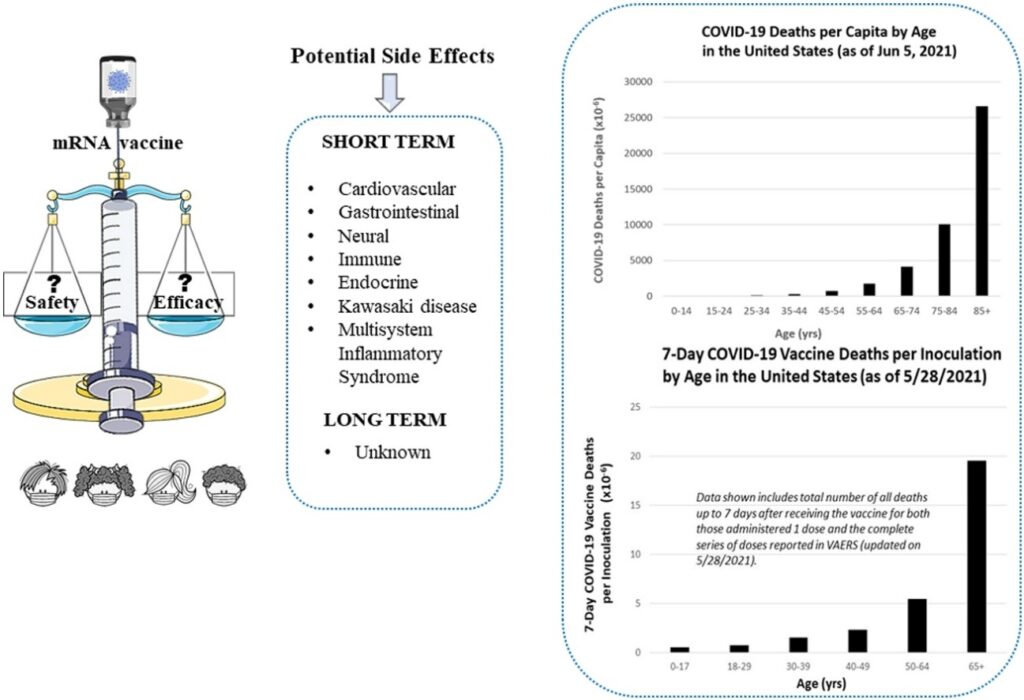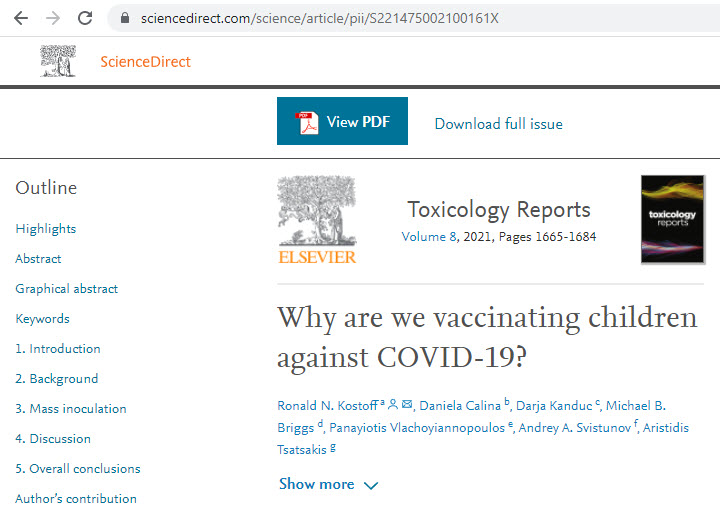“Why are we vaccinating children against COVID-19” is a great question, one posed by many, including by a group of international scientists who published the evidence against vaccinating children in the scientific journal Toxicology Reports.
In their abstract the authors write that:
The bulk of the official COVID-19-attributed deaths per capita occur in the elderly with high comorbidities, and the COVID-19 attributed deaths per capita are negligible in children. The bulk of the normalized post-inoculation deaths also occur in the elderly with high comorbidities, while the normalized post-inoculation deaths are small, but not negligible, in children. Clinical trials for these inoculations were very short-term (a few months), had samples not representative of the total population, and for adolescents/children, had poor predictive power because of their small size. Further, the clinical trials did not address changes in biomarkers that could serve as early warning indicators of elevated predisposition to serious diseases. Most importantly, the clinical trials did not address long-term effects that, if serious, would be borne by children/adolescents for potentially decades.
Besides the completely unknown long-term side-effects from the vaccines (reason enough to abstain), the key takeaway from this introduction is that the number of COVID-19 attributable deaths in children are negligible, while the number of COVID-19 vaccine attributable deaths in children are small but not negligible. In other words, statistically speaking, children are at a much higher risk of death from the COVID vaccine than from an actual COVID infection.
Besides the risk of death and unknown long-term side-effects, the vaccine is known to be the cause of short term cardiovascular, neural, immune, and other complications.

After a discussion of different research and outcomes, the authors write the following:
Where is the data justifying inoculation for children, much less most people under forty? It’s not found on Fig. 1, where the most vulnerable are almost exclusively the elderly with many comorbidities. Yet, in the USA, Pfizer has been approved to inoculate children 12–17, and the goal is to accomplish this by the start of the school year in the Fall. As stated previously, there are plans to inoculate children as young as six months starting before the end of 2021.
What is the rush for a group at essentially zero risks? Given that the inoculations were tested only for a few months, only very short-term adverse effects could be obtained. It is questionable how well even these short-term effects obtained from the clinical trials reflect the short-term effects from the initial mass inoculation results reported in VAERS….
A number of researchers have suggested the possibility of severe longer-term autoimmune, Antibody-Dependent Enhancement, neurological, and other potentially serious effects, with lag periods ranging from months to years. If such effects do turn out to be real, the children are the ones who will have to bear the brunt of the suffering. There appear to be no benefits for the children and young adults from the inoculations and only Costs!

